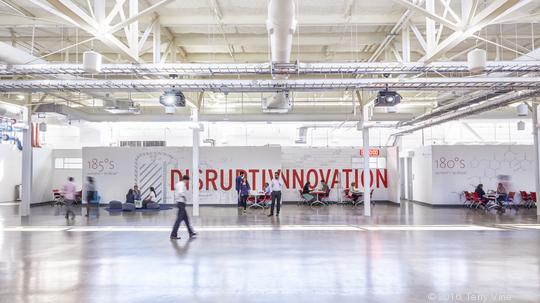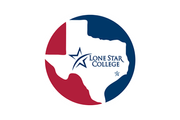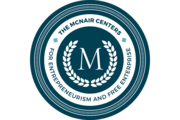
The Texas Medical Center's health tech innovation hub, TMC Innovation, named over 25 participants for two accelerator cohorts on Jan. 18.
Eight startups will join the spring 2023 Accelerator for HealthTech program, which provides fundraising opportunities and helps companies build relationships with the TMC medical campuses and their associated institutions. The eight participants' focuses include maternal medicine, mental health, diagnostics, patient experience and artificial intelligence. The list includes one Houston-based company and one from Ireland, while others came from elsewhere in the U.S.:
- Bloom Standard (Roseville, Minnesota) — Bloom Standard is deploying the first self-driving pediatric ultrasound to provide early heart and lung diagnoses in under-resourced and remote areas.
- Ejenta (San Francisco) — Ejenta automates remote patient monitoring and care using AI technology exclusively licensed from NASA to provide workflow support for clinicians.
- Kintsugi (Berkeley, California) — Kintsugi is developing voice biomarkers to detect signs of depression and anxiety from speech clips.
- Lana Health (San Francisco) — Lana is creating a platform to help patients manage their care transitions and improve clinical outcomes.
- Liberate Medical (Crestwood, Kentucky) — Liberate Medical is producing a non-invasive neurostimulation device called VentFree to improve patient experiences with mechanical ventilation.
- Limbix (Palo Alto, California) — Limbix is creating digital therapeutics that can be used to increase access to affordable, effective behavioral health care.
- Nua Surgical (Galway, Ireland) — Nua Surgical is creating a C-section retractor to improve access and visualization during delivery, making surgery safer.
- Prana Thoracic (Houston) — Prana Thoracic is developing a tool that enables early detection of pulmonary nodules, a potential sign of early-stage lung cancer.
The HealthTech program runs for six months and focuses on companies that have demonstrated a proof of concept, according to TMCi's website. The AHT program has existed since 2014 and has had over 225 participants. As the accelerator approached its 10th year of existence, its focus evolved to target later-stage companies, AHT head Devin Dunn told the Houston Business Journal.
"Our focus on later-stage companies shows that we are growing up a bit in the health care sector," Dunn said. "We have always had phenomenal research and clinical care, and now companies are coming here to commercialize."
The accelerator's impact was judged by companies hitting their milestones, including securing partnerships with institutions within the TMC member institution network, Dunn said.
Rachna Dhamija, founder and CEO of Ejenta, said the accelerator would help the company make introductions within Houston's many options for health care systems.
"TMC brokers can introduce us to potential partners across Houston's health care landscape because there are so many," Dhamija said. "We can then go on to learn more about what they are looking for in terms of ideas."
Separately, 21 researchers and companies were selected for TMCi's 2023 Accelerator for Cancer Therapeutics, which will run for nine months. The program supports both early-stage companies and researchers by making it easier for them to apply for grants and pitch to investors for the development of cancer therapeutics.
The ACT program launched in 2021, and 45 participants have gone on to raise over $90 million in funding from the National Institutes of Health, the Cancer Prevention and Research Institute of Texas, and venture capital firms. In November 2021, Massachusetts-based Parthenon Therapeutics, a member of the first cohort, closed a $65 million Series A funding round.
The 2023 cohort was named primarily from Texas-based institutions, including those in Houston such as Baylor College of Medicine and the University of Houston:
- Dr. Amit K. Tripathi — The University of North Texas Health Science Center at Fort Worth
- Dr. Darshan Gandhi (ImproveBio LLC)
- Dr. Frank McKeon (Tract Pharmaceutical) — University of Houston
- Dr. Hemanta Baruah (Aakha Biologics)
- Dr. Joshua Gruber — The University of Texas Southwestern Medical Center in Dallas
- Dr. Kyoji Tsuchikama — The University of Texas Health Science Center at Houston
- Dr. Maralice Conacci Sorrell — UT-Southwestern
- Dr. Michael Buszczak — UT-Southwestern
- Dr. Nadezhda (Nadia) German — Texas Tech University in Lubbock
- Dr. Parsa Modareszadeh (HemePro Therapeutics) — UT-Dallas
- Dr. Robert Kruse (HydroGene Therapeutics)
- Dr. Xiang Zhang — Baylor College of Medicine
- Dr. Youngwook Won (Singular Immune Inc.)
- Dr. Zhi-Ping Liu (Raphael Pharmaceutical LLC) — UT-Southwestern
- Dr. Jonathan Arambula (InnovoTEX Inc.)
- Dr. Isaac Chan — UT-Southwestern
- Dr. Olga Granaturova (Ruptakine Inc.) — UTHealth Houston
- Dr. Jim Song (Tranquility Biodesign) — Texas A&M University in College Station
- Dr. Rosa Selenia Guerra-Resendez (Quetzal Bio LLC) — Rice University in Houston
- Dr. Cassian Yee (Mongoose Bio LLC) — The University of Texas MD Anderson Cancer Center in Houston
- Dr. Manjeet Rao (Niragen Inc.) — The University of Texas Health Science Center at San Antonio
Elsewhere, the Texas Medical Center’s recent investments in health tech innovation include the work on its third campus, known as Helix Park, which is expected to see its first phase open in late 2023. TMC recently announced that Baylor College of Medicine will be an anchor tenant for an industry building on the campus.
In March 2022, the TMC board of directors approved a $50 million capital injection to TMC Venture Fund over the next 10 years. The additional funding will support additional early-stage investment as well as invest in areas that require more lead time, such as cancer therapeutics. TMC Venture Fund’s recent investments include a $17 million Series B raise for Houston-based health tech company Medical Informatics Corp. in November 2022.
Data from Pitchbook shows that deal valuation in the health care sector across the country fell sharply from 2021 to 2022, dropping from $216.7 billion to $111.7 billion. Pitchbook’s Venture Monitor report for the fourth quarter of 2022 found that total early-stage deal value across all sectors slid from $25 billion in Q4 2021 to approximately $10 billion in Q4 2022.
Dhamija said the downturn in fundraising would not affect Ejenta's targeted goals and opened other opportunities.
"Our goals are always about customer care, and they're not affected by a more competitive fundraising environment," Dhamija said. "There are also opportunities to hire talent that we might not be able to hire in other times."





